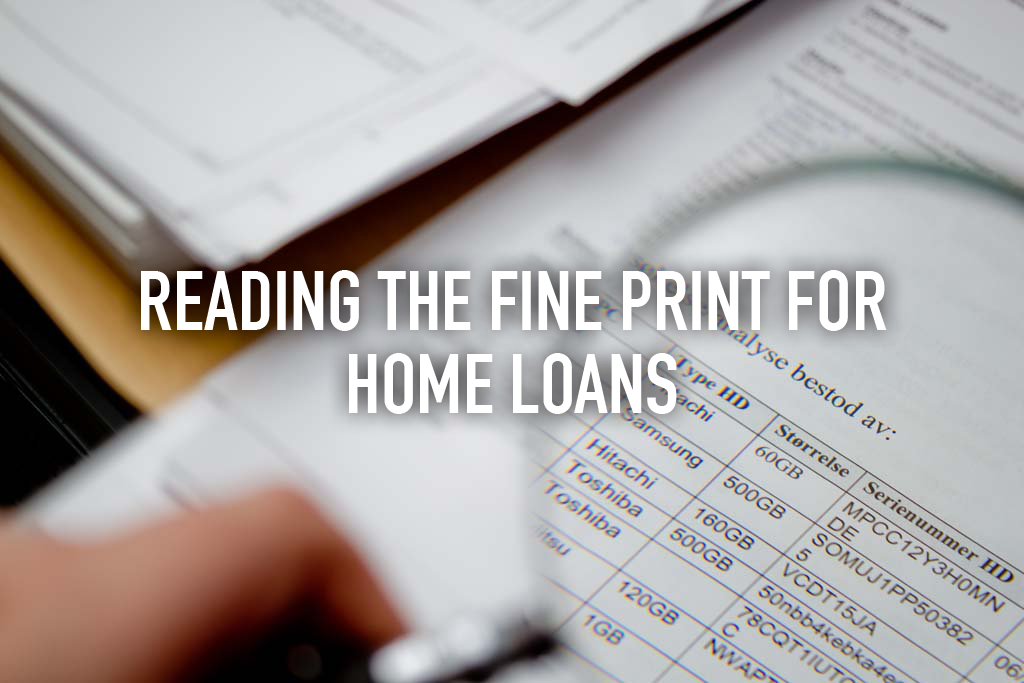
These are the key criteria you have to take into consideration when choosing your home loan:
- Reference Rate
This can be either a Fixed Rate, or floating rates pegged to Singapore Interbank Offer Rate (SIBOR), Swap Offer Rate (SOR) or banks’ internal Board Rates. - Lock-in period
Typically ranges between 1 to 3 years, but we have also seen lock-in periods of up to 8 years. The lock-in period determines the time frame in which you have to keep the mortgage with the bank. Redeeming the loan (whether making a full settlement for the loan, refinancing the property or selling the property) prematurely attracts prepayment penalties. - Prepayment penalties
Usually applicable within the lock-in period. This is the sum of money you have to pay when you prepay the loan. It can range from 0.75% to 2% of the loan amount prepaid – whether you pay off part of the loan or the loan in full. - Interest reset dates
This applies to loan packages that are pegged to reference rates such as SOR/SIBOR. Some banks dictate that you may only redeem the loan on specific dates (which falls on the reset date of your loan. i.e. You took up a loan on 1 Mar which is pegged to the 3-month SIBOR. As the loan interest resets every 3 months, you may only redeem the loan on 1 March, 1 June, 1 September and 1 December every year. Failure to do so will attract a penalty). Penalties can range from 0.5% to 2% of the loan amount redeemed. - Cancellation fees
While prepayment penalties kick in after the loan is disbursed, cancellation fees apply between the period when you pen your signature on the loan agreement and the day the loan is disbursed. Should you wish to back out of the loan before disbursement, cancellation fee applies. Cancellation fees typically range between 0.5% to 2% of the loan amount cancelled. - Subsidies
Applies to refinancing for residential properties, or purchase and refinancing for commercial properties. Some banks dangle subsidies to encourage prospective customers to take up their home loans. The various subsidies are for:- Legal fees;
- Valuation fees and;
- Free fire insurance premiums.
- Reimbursement clauses
Applied on subsidies offered by banks. To make sure the loan package offered is profitable to the banks, there is a minimum period where you have to hold on to the loan; failing which you have to refund the value of the subsidies to the bank. Reimbursement clauses usually apply up to a period of 3 years. - Conversion fees
Since most home loan products in Singapore are structured in a “step-up” basis (see point 9), you will have to renegotiate the loan terms with the bank from time to time. Some banks will encourage you to check back with them by waiving conversion fees (for you to switch to a cheaper loan package), while others might charge you a fee (which can range from $500 to $5000) to re-price your loan. - Product structure
Most banks offer home loan packages on a “step-up” basis, where your loan gets progressively more expensive as time passes. Other banks reward you for your loyalty, offering “step-down” loans where your loan gets cheaper, the longer you stay with them. - Admin fees or processing charges
Miscellaneous fees and charges are not commonly seen in home loan contracts. They are more prevalent when you obtain financing for commercial/industrial properties or when you obtain financing under a corporate entity. Such fees and charges can range from a few hundreds to a few thousand.
Want to find the best mortgage rate in town? Check out our free comparison service to learn more!
Read more of our posts below!

